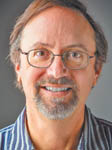
Biblical scholarship can be tedious and exacting work, like accounting or taxidermy. Unlike these fields, Biblical scholarship is often controversial, attracting charges of heresy, treason and even insanity. I explore some of these controversies in my recent book about textual criticism of the Hebrew Bible, showing how textual critics over the last several centuries have often encountered resistance to their scholarship.1 For instance, in 1516 when Erasmus published the first critical edition of the New Testament and argued for the need to learn Biblical languages (Greek, Hebrew and Aramaic) to understand the Bible, he was called everything from arch-heretic to antichrist. One critic wrote, “We do not need a knowledge of foreign languages for an understanding of Holy Writ, and for this reason it is vain and frivolous to spend time on learning them. … It is completely insane and smacks of heresy.” Such were the emotional and theological stakes of Biblical criticism at the time.
Other debates about Biblical scholarship were more dangerous. In the 17th and 18th centuries, the question of Mosaic authorship of the Pentateuch could be a matter of life or death. Scholars often fled to the relative freedom of Holland to escape persecution in England or France. As Richard Friedman relates in his book Who Wrote the Bible?, the Englishman John Hampden repudiated his notorious view that the whole Pentateuch was not written by Moses “shortly before his release from the tower [of London].”2 In such circumstances, contesting Mosaic authorship merited the charge of treason against the state.
One would think that such dangers are behind us today. At public universities like the University of California, Berkeley, where I teach, there are rules about academic freedom to protect scholars from accusations of treason or heresy. In my undergraduate classes, I carefully explain to students that modern Biblical scholarship is different from speech about the Bible in churches and synagogues. It is a context where critical analysis—a mixture of historical and linguistic study using the original languages—rather than affirmations of faith or religious apologetics is the standard. The students generally understand this distinction between university study and religious affirmation, and they are often excited to learn about the Bible outside of theology. But sometimes students have difficulty or resist this separation of domains and insist that their religious commitments—such as Biblical inerrancy or Mosaic authorship of the Pentateuch—trump Biblical scholarship. These students tend to drop my class since it conflicts with their heartfelt convictions. I respect their dilemma, and I encourage them to stay if they are willing to learn the techniques and material of the course, even if they disagree with them. Critical thought, not indoctrination, is the goal. Teaching modern Biblical scholarship in the university is a delicate art since it challenges many unexamined assumptions.
Much to my surprise, I recently discovered that teaching Biblical scholarship in the university is still susceptible to charges of treason and heresy. Shortly after the presidential election, a right-wing organization issued a “Professor Watchlist,” which includes my name and picture. Along with some 200 other professors, I am accused of “promot[ing] anti-American values and advanc[ing] leftist propaganda in the classroom.”3 My un-American propaganda is modern Biblical scholarship. The list accuses me of the following crime: “[telling] students not to take his class if they think the Bible is infallible.” This is not quite true since I tell students that they are welcome to take the class if they can operate within its academic horizons, that is, learning the material even if they disagree with it. Nonetheless, the accusation hits home. Since I teach modern Biblical scholarship—including evidence for J, E, P, Da and other non-Mosaic sources of the Pentateuch—I am presumed guilty of un-American activity and radical heresy.
I used to think that this kind of anti-intellectual bigotry was a relic of the past. But we seem to be entering interesting times. In this dawning era of right-wing political correctness, I suppose that I ought to put a trigger warning on my books and courses, lest students be confronted with unfamiliar and uncomfortable ideas. Here’s my idea for a trigger warning: “Danger: Biblical scholar at work.” This ought to work for the faint of heart and for the patriotic defenders of ignorance. But it might not be enough. In this era of extremism and intimidation, I fear that the scholarly study of the Bible is at risk.
